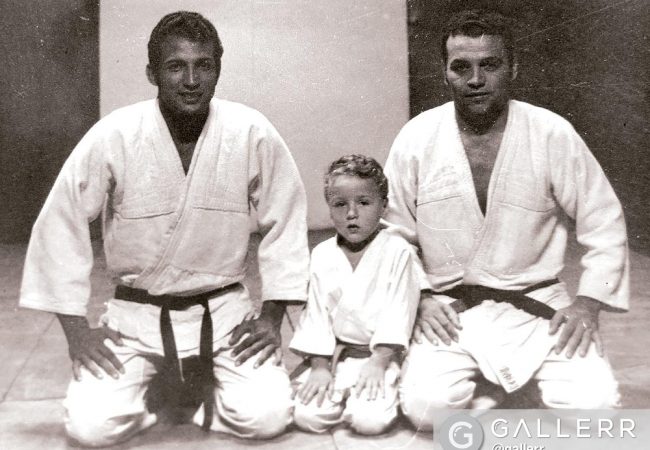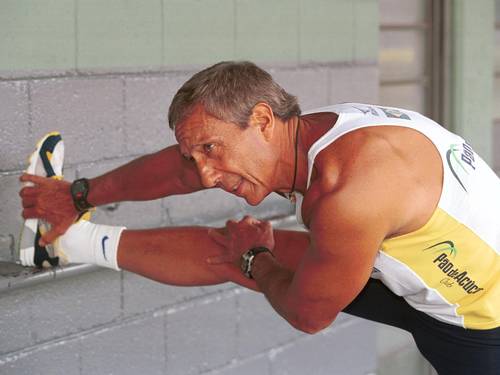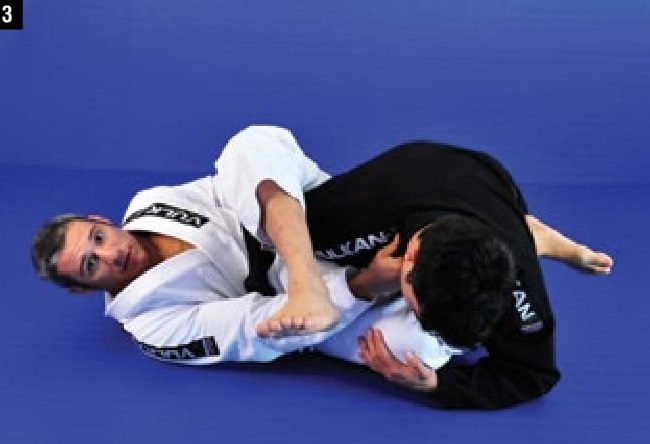[First published in 2009. Scroll down for plain text. Part of the Training for Warriors series, by Martin Rooney*]
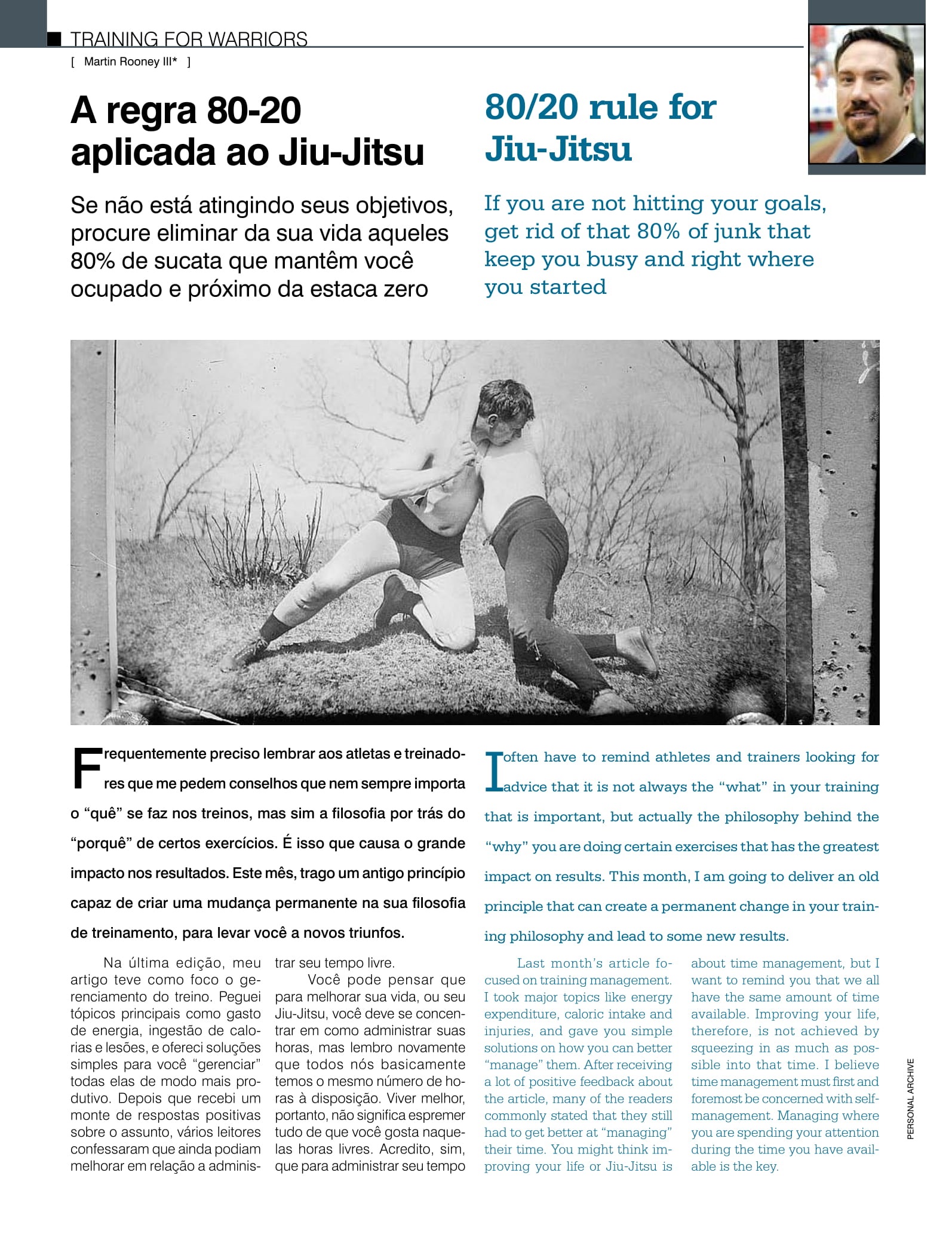
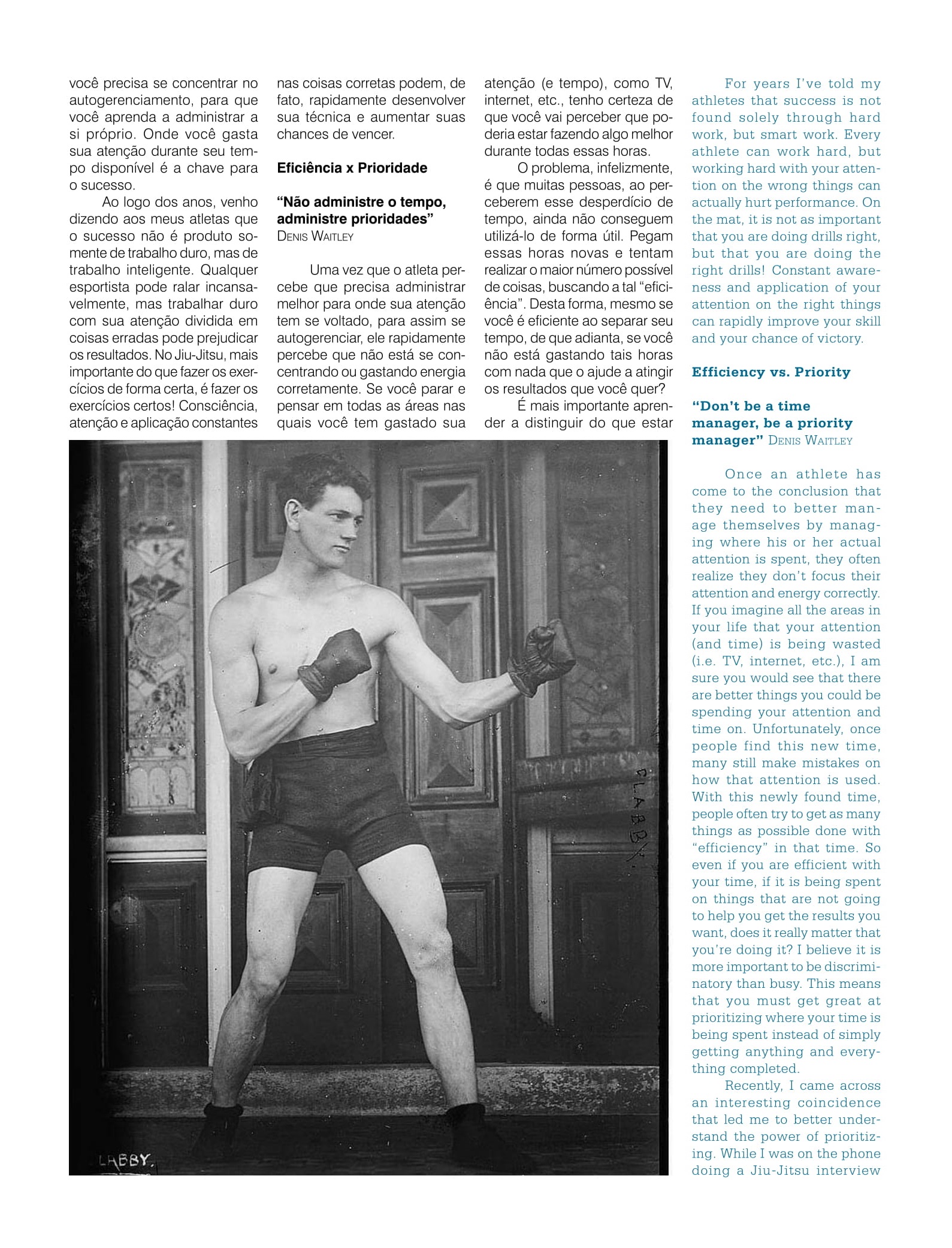
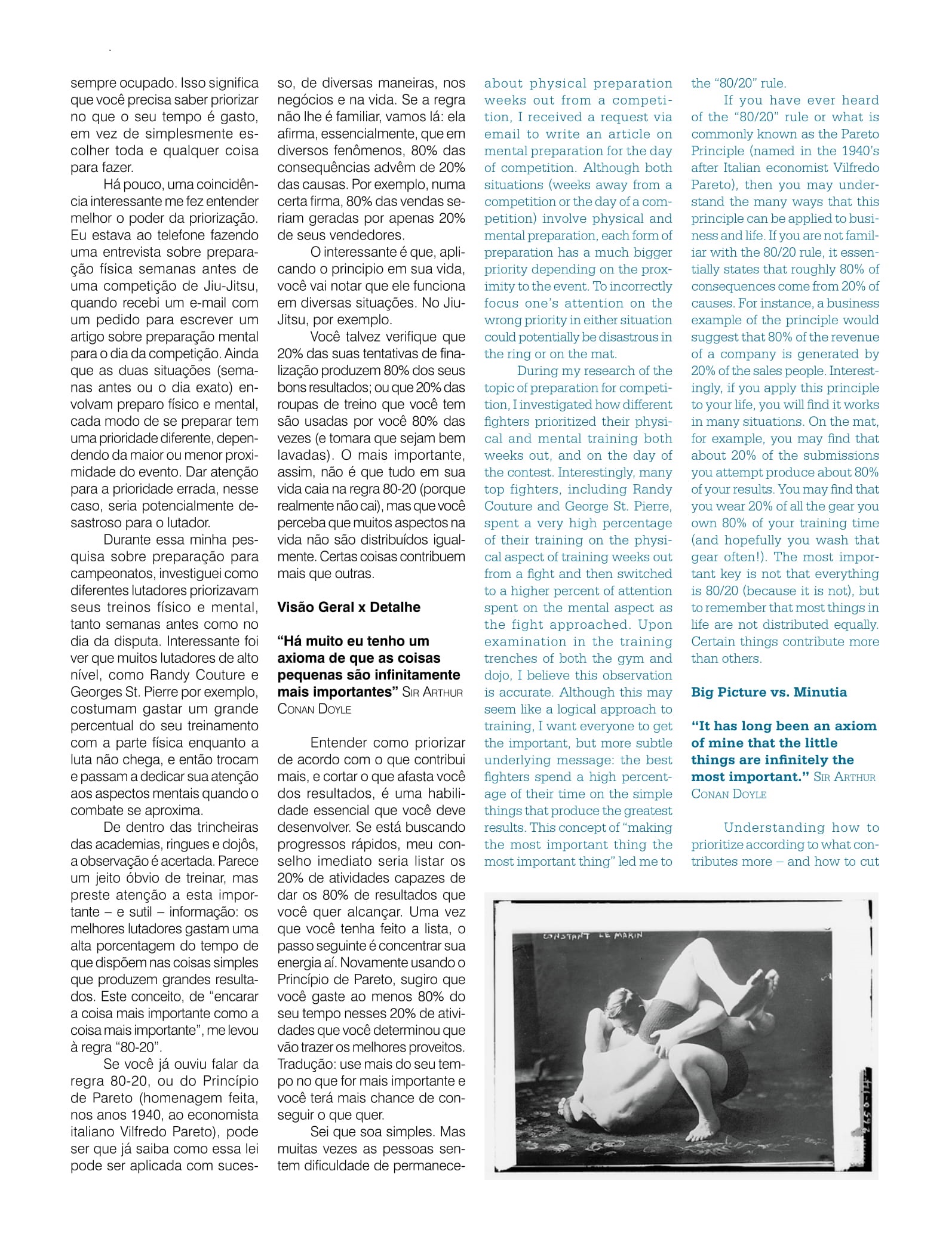
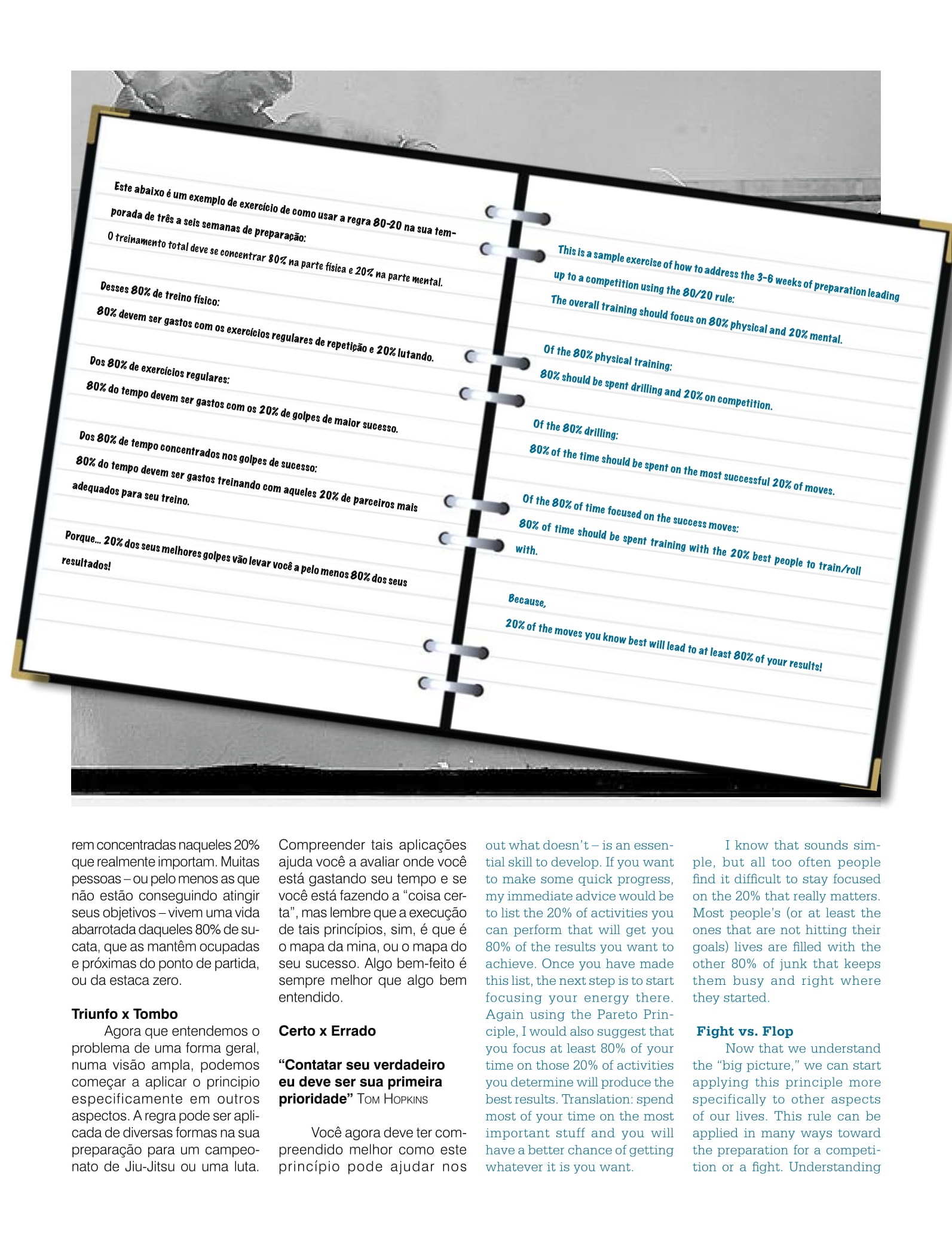
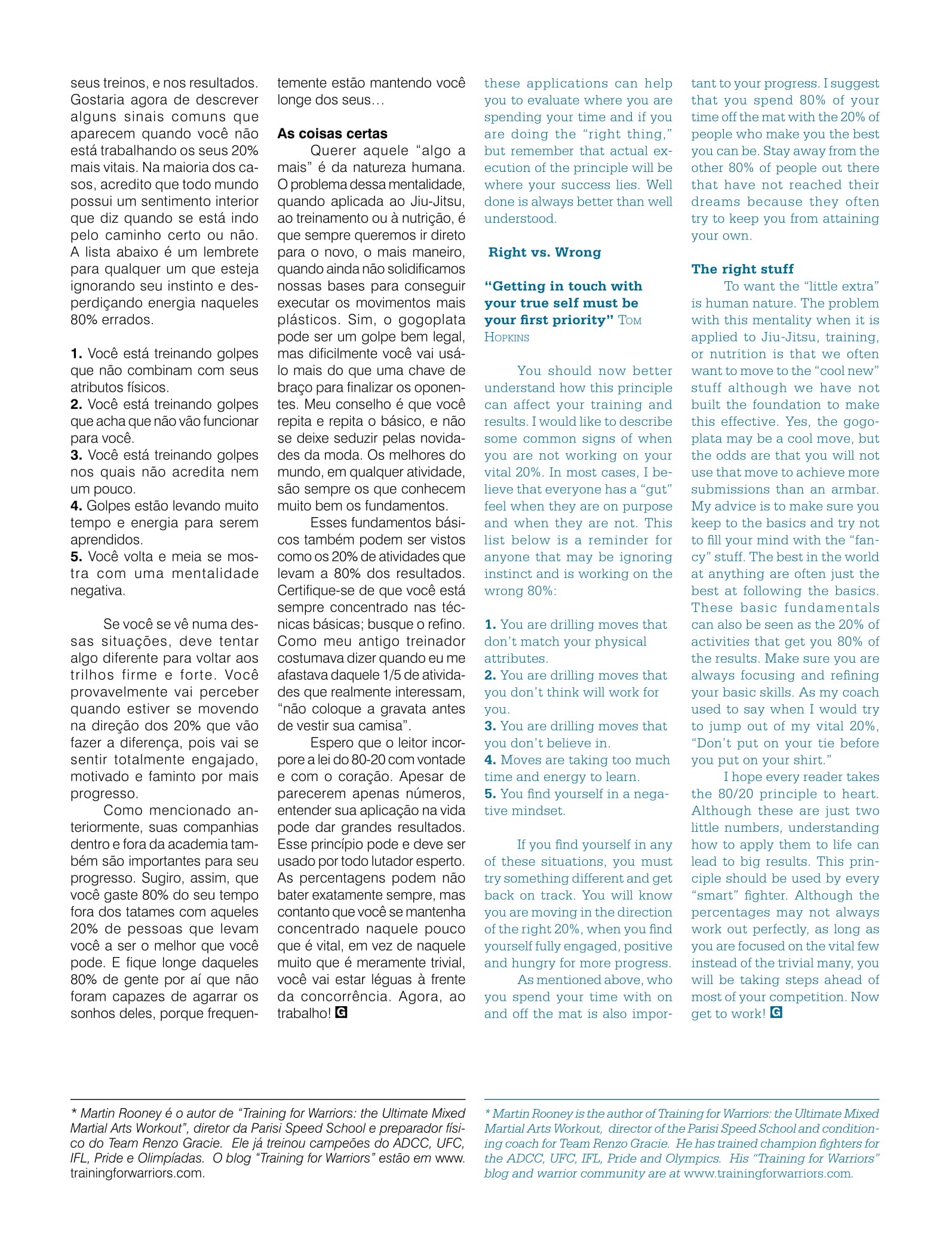
I often have to remind athletes and trainers looking for advice that it is not always the “what” in your training
that is important, but actually the philosophy behind the
“why” you are doing certain exercises that has the greatest
impact on results. This month, I am going to deliver an old
principle that can create a permanent change in your training philosophy and lead to some new results.
Last month’s article focused on training management.
I took major topics like energy
expenditure, caloric intake and
injuries, and gave you simple
solutions on how you can better
“manage” them. After receiving
a lot of positive feedback about
the article, many of the readers
commonly stated that they still
had to get better at “managing”
their time. You might think improving your life or Jiu-Jitsu is
about time management, but I
want to remind you that we all
have the same amount of time
available. Improving your life,
therefore, is not achieved by
squeezing in as much as possible into that time. I believe
time management must first and
foremost be concerned with self-management. Managing where
you are spending your attention
during the time you have available is the key.
For years I’ve told my
athletes that success is not
found solely through hard
work, but smart work. Every
athlete can work hard, but
working hard with your attention on the wrong things can
actually hurt performance. On
the mat, it is not as important
that you are doing drills right,
but that you are doing the
right drills! Constant awareness and application of your
attention on the right things
can rapidly improve your skill
and your chance of victory.
Efficiency vs. Priority
“Don’t be a time
manager, be a priority
manager” — Denis Waitley
Once an athlete has
come to the conclusion that
they need to better manage themselves by managing where his or her actual
attention is spent, they often
realize they don’t focus their
attention and energy correctly.
If you imagine all the areas in
your life that your attention
(and time) is being wasted
(i.e. TV, internet, etc.), I am
sure you would see that there
are better things you could be
spending your attention and
time on.
Unfortunately, once
people find this new time,
many still make mistakes on
how that attention is used.
With this newly found time,
people often try to get as many
things as possible done with
“efficiency” in that time. So
even if you are efficient with
your time, if it is being spent
on things that are not going
to help you get the results you
want, does it really matter that
you’re doing it? I believe it is
more important to be discriminatory than busy. This means
that you must get great at
prioritizing where your time is
being spent instead of simply
getting anything and everything completed.
Recently, I came across
an interesting coincidence
that led me to better understand the power of prioritizing. While I was on the phone
doing a Jiu-Jitsu interview
about physical preparation
weeks out from a competition, I received a request via
email to write an article on
mental preparation for the day
of competition. Although both
situations (weeks away from a
competition or the day of a competition) involve physical and
mental preparation, each form of
preparation has a much bigger
priority depending on the proximity to the event. To incorrectly
focus one’s attention on the
wrong priority in either situation
could potentially be disastrous in
the ring or on the mat.
During my research of the
topic of preparation for competition, I investigated how different
fighters prioritized their physical and mental training both
weeks out, and on the day of
the contest. Interestingly, many
top fighters, including Randy
Couture and George St. Pierre,
spent a very high percentage
of their training on the physical aspect of training weeks out
from a fight and then switched
to a higher percent of attention
spent on the mental aspect as
the fight approached. Upon
examination in the training
trenches of both the gym and
dojo, I believe this observation
is accurate. Although this may
seem like a logical approach to
training, I want everyone to get
the important, but more subtle
underlying message: the best
fighters spend a high percentage of their time on the simple
things that produce the greatest
results. This concept of “making
the most important thing the
most important thing” led me to
the “80/20” rule.
If you have ever heard
of the “80/20” rule or what is
commonly known as the Pareto
Principle (named in the 1940’s
after Italian economist Vilfredo
Pareto), then you may understand the many ways that this
principle can be applied to business and life. If you are not familiar with the 80/20 rule, it essentially states that roughly 80% of
consequences come from 20% of
causes. For instance, a business
example of the principle would
suggest that 80% of the revenue
of a company is generated by
20% of the sales people. Interestingly, if you apply this principle
to your life, you will find it works
in many situations. On the mat,
for example, you may find that
about 20% of the submissions
you attempt produce about 80%
of your results. You may find that
you wear 20% of all the gear you
own 80% of your training time
(and hopefully you wash that
gear often!). The most important key is not that everything
is 80/20 (because it is not), but
to remember that most things in
life are not distributed equally.
Certain things contribute more
than others.
Big Picture vs. Minutia
“It has long been an axiom
of mine that the little
things are infinitely the
most important.” — Sir Arthur
Conan Doyle
Understanding how to
prioritize according to what contributes more – and how to cut
out what doesn’t – is an essential skill to develop. If you want
to make some quick progress,
my immediate advice would be
to list the 20% of activities you
can perform that will get you
80% of the results you want to
achieve. Once you have made
this list, the next step is to start
focusing your energy there.
Again using the Pareto Principle, I would also suggest that
you focus at least 80% of your
time on those 20% of activities
you determine will produce the
best results. Translation: spend
most of your time on the most
important stuff and you will
have a better chance of getting
whatever it is you want.
I know that sounds simple, but all too often people
find it difficult to stay focused
on the 20% that really matters.
Most people’s (or at least the
ones that are not hitting their
goals) lives are filled with the
other 80% of junk that keeps
them busy and right where
they started.
Fight vs. Flop
Now that we understand
the “big picture,” we can start
applying this principle more
specifically to other aspects
of our lives. This rule can be
applied in many ways toward
the preparation for a competition or a fight. Understanding
these applications can help
you to evaluate where you are
spending your time and if you
are doing the “right thing,”
but remember that actual execution of the principle will be
where your success lies. Well
done is always better than well
understood.
Right vs. Wrong
“Getting in touch with
your true self must be
your first priority” tom
hopkins
You should now better
understand how this principle
can affect your training and
results. I would like to describe
some common signs of when
you are not working on your
vital 20%. In most cases, I believe that everyone has a “gut”
feel when they are on purpose
and when they are not. This
list below is a reminder for
anyone that may be ignoring
instinct and is working on the
wrong 80%:
1. You are drilling moves that
don’t match your physical
attributes.
2. You are drilling moves that
you don’t think will work for
you.
3. You are drilling moves that
you don’t believe in.
4. Moves are taking too much
time and energy to learn.
5. You find yourself in a negative mindset.
If you find yourself in any
of these situations, you must
try something different and get
back on track. You will know
you are moving in the direction
of the right 20%, when you find
yourself fully engaged, positive
and hungry for more progress.
As mentioned above, who
you spend your time with on
and off the mat is also important to your progress. I suggest
that you spend 80% of your
time off the mat with the 20% of
people who make you the best
you can be. Stay away from the
other 80% of people out there
that have not reached their
dreams because they often
try to keep you from attaining
your own.
The right stuff
To want the “little extra”
is human nature. The problem
with this mentality when it is
applied to Jiu-Jitsu, training,
or nutrition is that we often
want to move to the “cool new”
stuff although we have not
built the foundation to make
this effective. Yes, the gogoplata may be a cool move, but
the odds are that you will not
use that move to achieve more
submissions than an armbar.
My advice is to make sure you
keep to the basics and try not
to fill your mind with the “fancy” stuff. The best in the world
at anything are often just the
best at following the basics.
These basic fundamentals
can also be seen as the 20% of
activities that get you 80% of
the results. Make sure you are
always focusing and refining
your basic skills. As my coach
used to say when I would try
to jump out of my vital 20%,
“Don’t put on your tie before
you put on your shirt.”
I hope every reader takes
the 80/20 principle to heart.
Although these are just two
little numbers, understanding
how to apply them to life can
lead to big results. This principle should be used by every
“smart” fighter. Although the
percentages may not always
work out perfectly, as long as
you are focused on the vital few
instead of the trivial many, you
will be taking steps ahead of
most of your competition. Now
get to work!
* Martin Rooney is the founder of the Training for Warriors system and has trained champion fighters for the UFC, Pride, ADCC and Olympics. His TFW fitness program is used in over 175 facilities in 25 countries around the world. Information about TFW certifications at trainingforwarriors.com.



